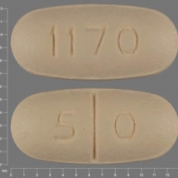Naltrexone

Harm Reduction
The most common side effects reported with naltrexone are non-specific gastrointestinal complaints such as diarrhea and abdominal cramping. Naltrexone has been reported to cause liver damage.
Naltrexone should not be started prior to several days of abstinence from opioids. This is due to the risk of acute opioid withdrawal if naltrexone is taken, as naltrexone will displace most opioids from their receptors, although of course with rapid detox this will already have happened. This period may depend on the half-life of the specific opioid previously used. Some physicians use a naloxone challenge to determine whether an individual has any opioids remaining in their system. The challenge involves giving a test dose of naloxone and monitoring for opioid withdrawal. If withdrawal occurs, naltrexone should not be started.
It is important that one not attempt to use opioids while using naltrexone. Although naltrexone blocks the opioid receptor, it is possible to override this blockade with very high doses of opioids, although this will usually be at least a gram of above average ‘street’ (40%) strength heroin. Similarly one will not show normal response to opioid pain medications when taking naltrexone. All individuals taking naltrexone are encouraged to wear a wristband, keep a card or a note in their wallet in case of an injury or another medical emergency that may require opioids. This is to let medical personnel know that special procedures are required if pain control is indicated.
There has been some controversy regarding the use of opioid-receptor antagonists, such as naltrexone, in the long-term management of opioid dependence due primarily to the emotional equilibrium of the ex-user. Many report periods of deep melancholy for months in early ‘recovery’.
Sleep disturbance may endure for anything from 3 days to over a month (albeit reducing). For this reason, a course of benzodiazepines may be beneficial. Anti nausea medication and non opiate based painkillers such as Voltarol (diclofenac), deal with residual minor aches and pains and many ex opiate users find to their distress that their past use will have masked minor (and major) ailments that will require attention.
With the NHS only offering tablets, cost is an issue for most users and their families, despite the good results that this abstinence based treatment can deliver. However, it is not advised to attempt to purchase naltrexone on the 'black market', as you can't be certain of its origins or purity, and can do serious harm by self-administering.
